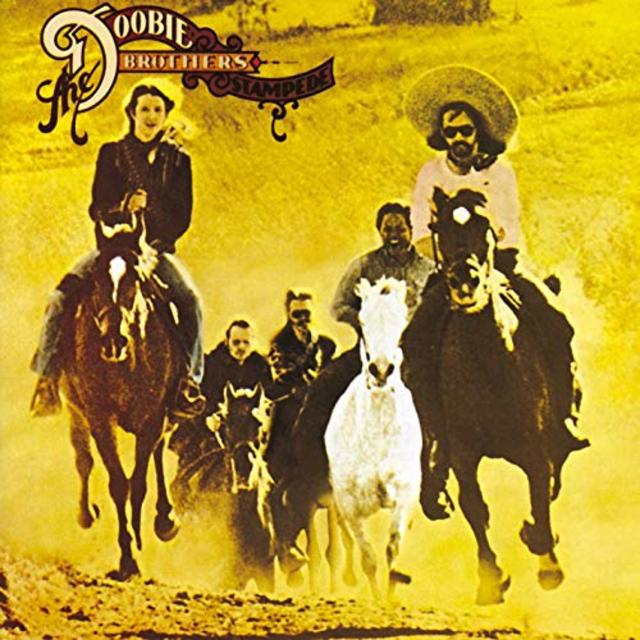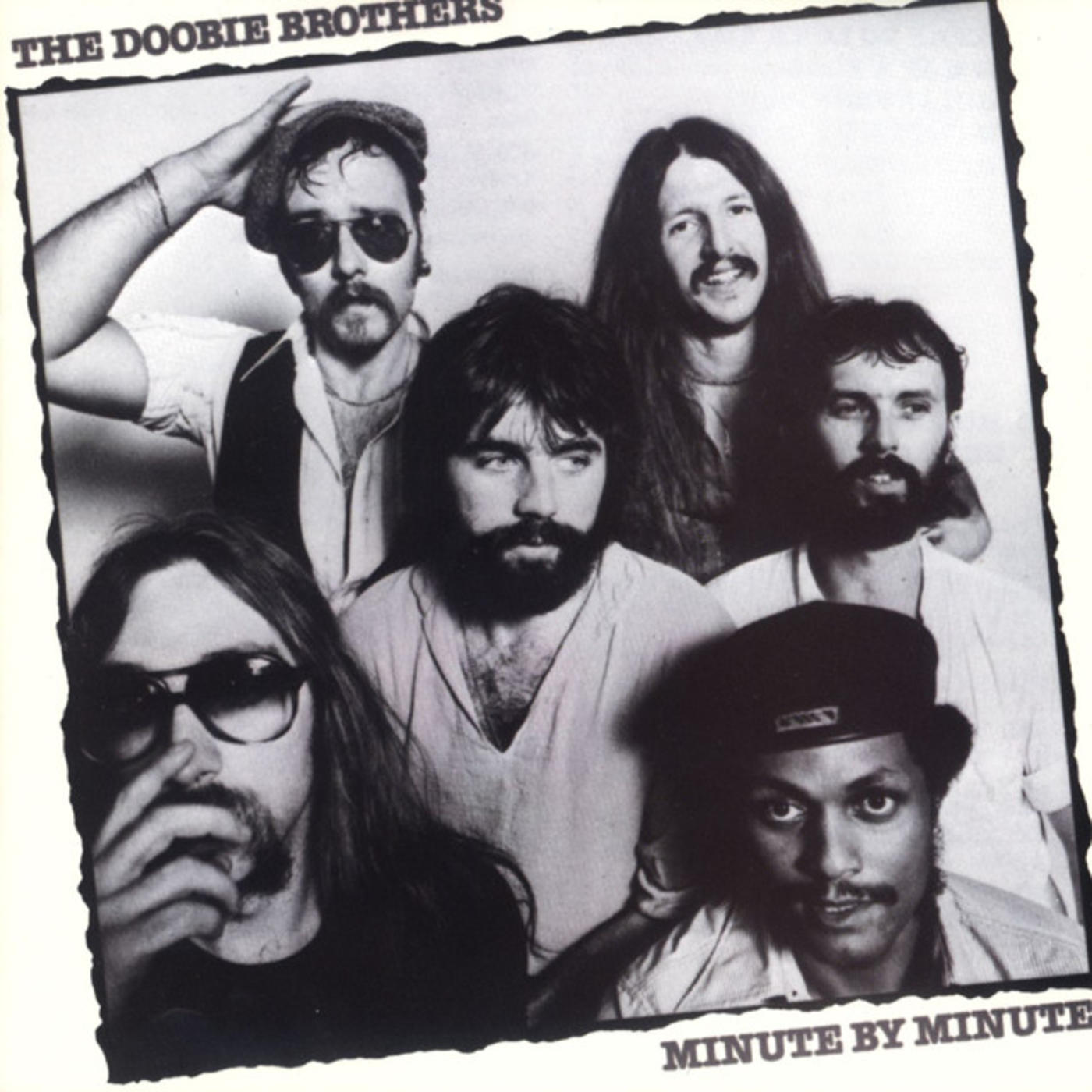The One After the Big One: Doobie Brothers, STAMPEDE

Even before Michael McDonald joined the group, turning it into a slick pop hit machine, the Doobie Brothers had gone through several smaller evolutions, tightening the acoustic rock and blues sound they had exhibited on their debut and incorporating old-school soul and even proggish keyboards on subsequent releases. They’d morphed into a consistent concert draw, platinum-selling album act and, with 1974’s “Black Water,” even pulled off a Number One hit.
They followed that hit (and the album from whence it came, WHAT WERE ONCE VICES ARE NOW HABITS) with yet another evolution, luring guitarist Jeff “Skunk” Baxter from Steely Dan and incorporating his licks and textural elements into a fully mature, fully engaging instrumental attack on 1975’s STAMPEDE.
Listen to Baxter’s solo on singer Tom Johnston’s “Music Man” and hear how his dirty tone melds with the strings (arranged by Curtis Mayfield) – two opposing sounds that blend together seamlessly in service to the song. Hear the intricate picking on Johnston’s “I’ve Been Workin’ on You,” the call and response with the female background singers, and then, once again, Baxter enters to solo with that tone; it’s northern California soul at its apex, even if you didn’t think such a thing existed. Speaking of soul, Johnston’s take on the Holland/Dosier/Holland joint “Take Me in Your Arms (Rock Me a Little While)” is an obvious highlight, precision-calibrated to pop out of any AM radio and make drivers dangerous in traffic.
Patrick Simmons (the main voice of “Black Water”) has his own highlights on STAMPEDE, namely his boppin’ paean to Kerouac compatriot Neal Cassidy, “Neal’s Fandango,” as well as the ethereal, six-minute “I Cheat the Hangman,” with guest singer Maria Muldaur lending her voice to the ghostly soldier’s tale.
Voices would soon be a concern in Doobieville; on the eve of a tour in support of STAMPEDE, Johnston’s bouts with stomach ulcers required hospitalization, sidelining him, and the band brought in Michael McDonald to fill in for those live commitments. McDonald would stick around after the tour, joining the band full-time and leading them on their conquest of the pop charts over the next few years.
STAMPEDE, however, stands as a terrific Doobies record, whose deepest charms deserve a fresh spin on ye olde turntable, or one’s music-playing device of choice.
For more information, click the buttons below:

